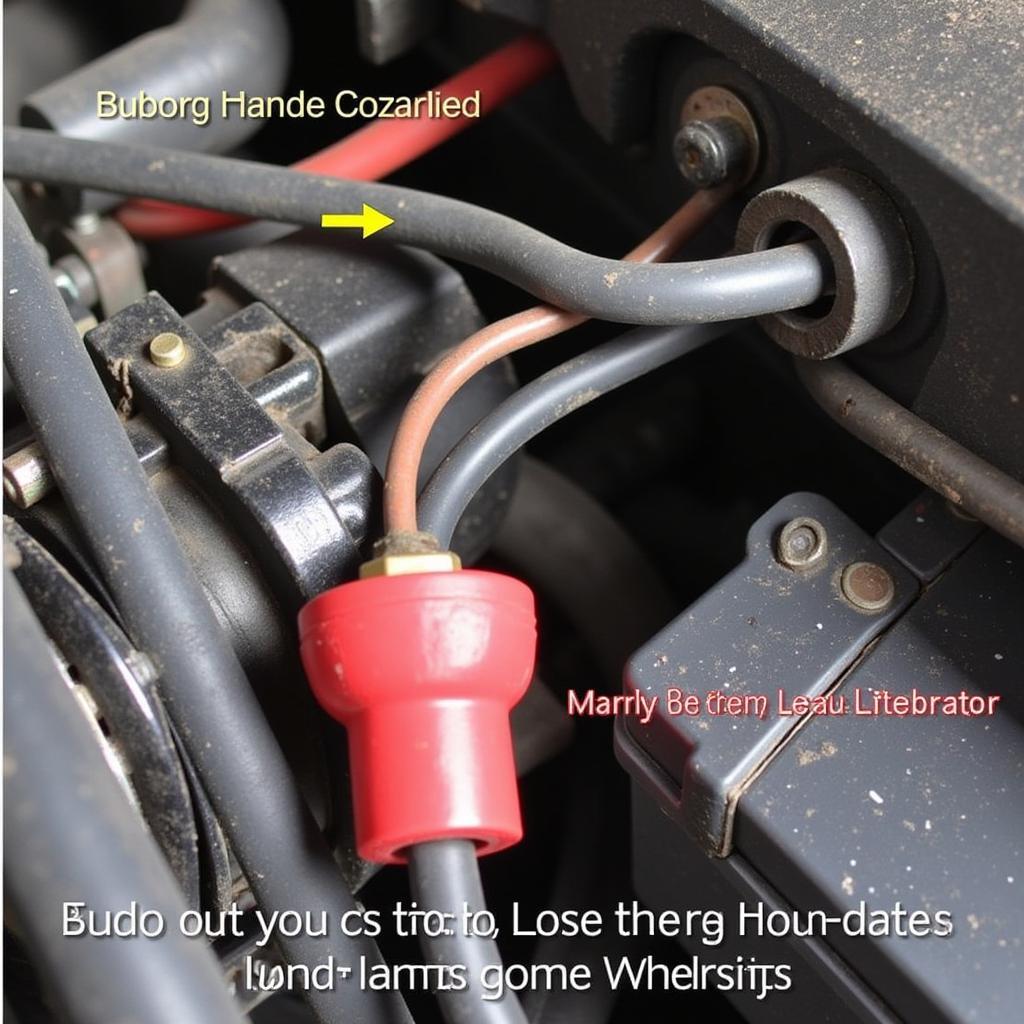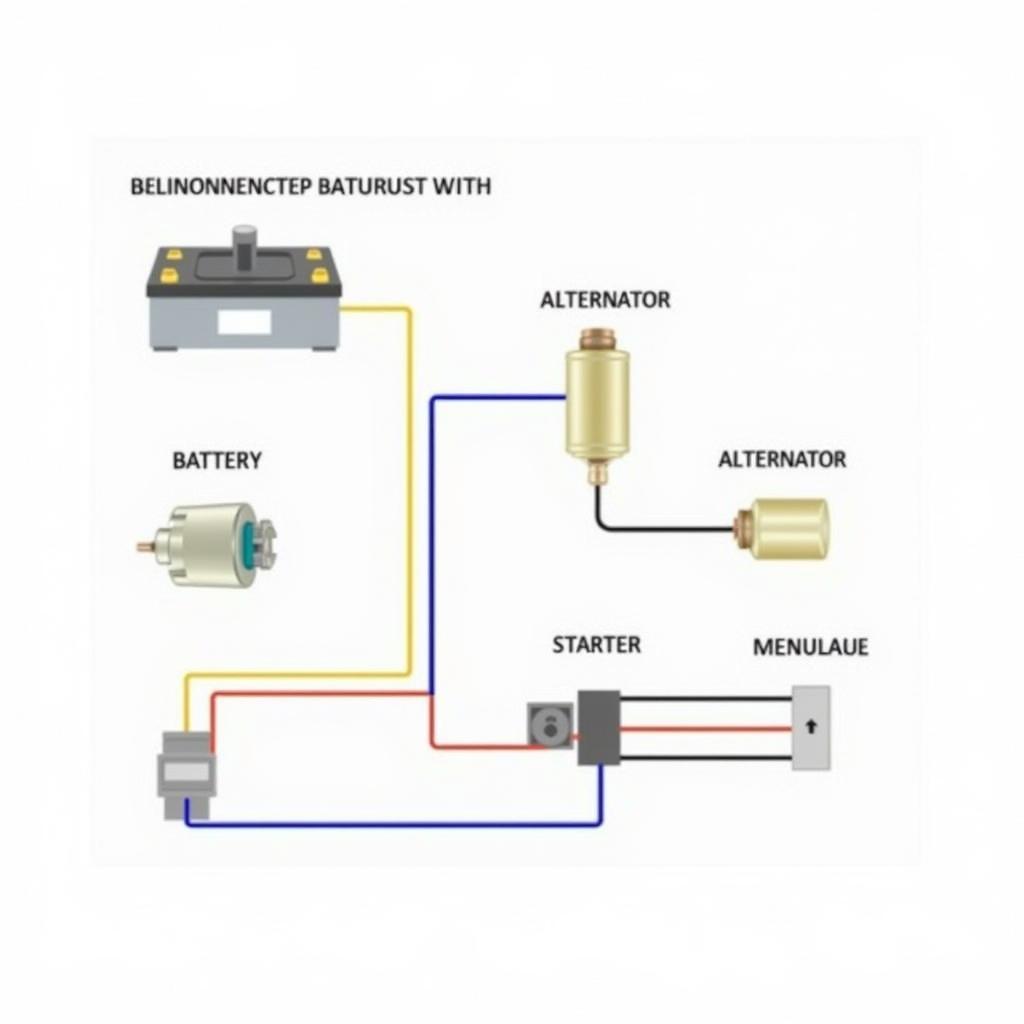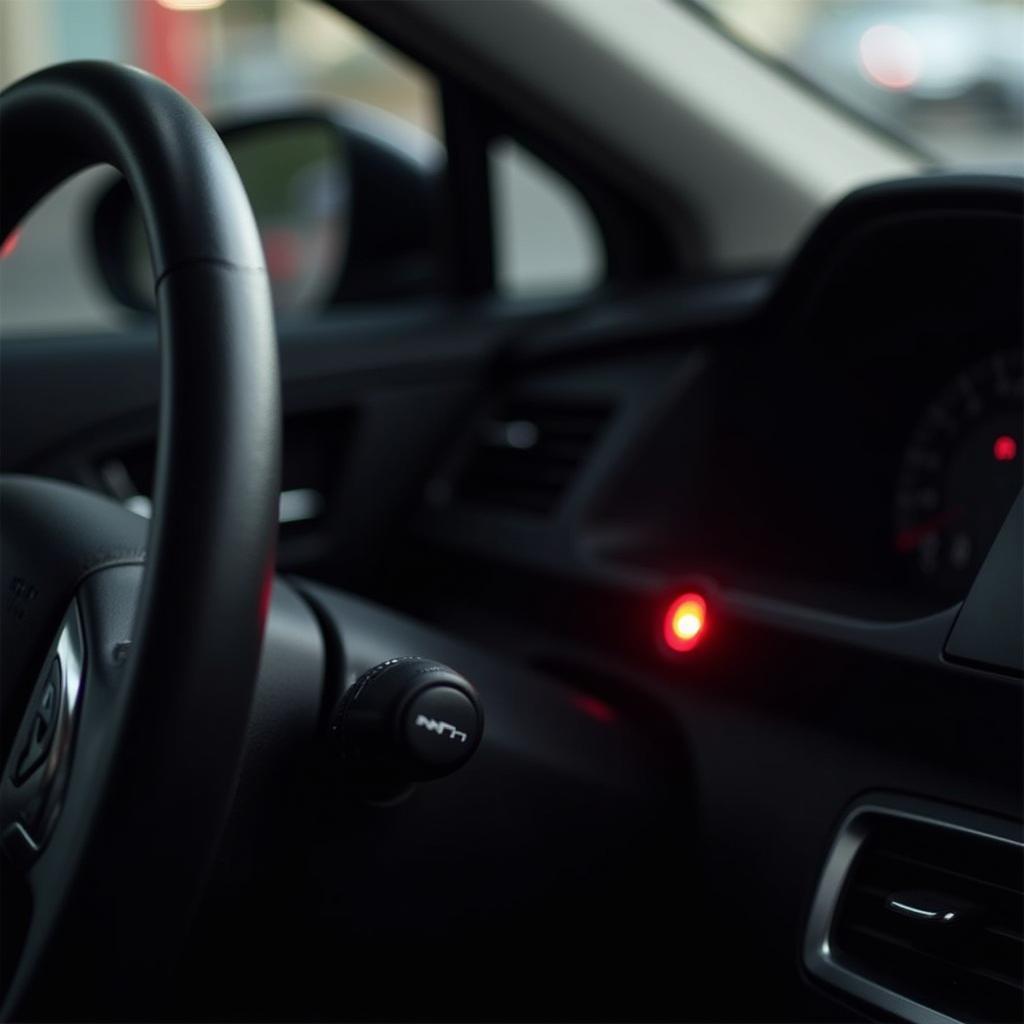You’ve replaced both your alternator and battery, yet your car stubbornly refuses to start. This is a frustrating situation, but you’re not alone. Many drivers experience this issue and wonder what could be wrong. Let’s dive into the possible causes and solutions. If you’ve recently had a new battery installed and are experiencing issues, you might find this article on a new battery and car still wont start helpful.
Why a New Alternator and Battery Might Not Fix the Starting Problem
While a failing alternator or battery is often the culprit behind starting issues, there are other potential reasons your car still won’t turn over even after replacing both. These include issues with the starter motor, wiring problems, blown fuses, faulty ignition switch, or even a bad ground connection.
 Wiring Issues in a Car
Wiring Issues in a Car
Troubleshooting a Car That Won’t Start After Replacing Alternator and Battery
Here’s a step-by-step guide to help you diagnose the problem:
- Check the Starter: The starter motor is responsible for cranking the engine. A clicking sound when you turn the key might indicate a faulty starter. You can try tapping on the starter with a hammer while someone tries to start the car. This can sometimes temporarily dislodge a stuck component inside the starter.
- Inspect Wiring and Connections: Carefully examine the battery terminals, alternator connections, and starter wiring for any signs of corrosion, loose connections, or damage. Clean any corroded terminals with a wire brush and baking soda solution. Ensure all connections are tight and secure.
- Test the Fuses: Check the fuses related to the starting system. A blown fuse can interrupt the power supply to the starter or ignition system. Consult your owner’s manual for the fuse box location and fuse diagram.
- Examine the Ignition Switch: The ignition switch supplies power to various components when you turn the key. A faulty ignition switch can prevent the starter from engaging. While less common, it’s worth checking if the other components are functioning correctly.
- Verify the Ground Connection: A poor ground connection can prevent the starter from receiving enough current. Check the ground cable from the battery to the engine block and the ground strap from the engine to the chassis. Ensure these connections are clean and tight.
 Car Starting System Components
Car Starting System Components
Common Mistakes When Replacing an Alternator and Battery
Sometimes, the issue isn’t a new problem, but a mistake made during the replacement process. Double check for these:
- Incorrectly connected battery terminals: Make sure the positive and negative terminals are connected correctly.
- Loose or corroded connections: Even new connections can be loose or become corroded quickly.
- Faulty new parts: While rare, it’s possible to get a defective new alternator or battery.
“A surprising number of no-start issues after replacing the alternator and battery stem from simple connection problems. Always double-check your work,” advises John Miller, ASE Certified Master Technician.
What to Do if Your Car Still Won’t Start
If you’ve tried all these steps and your car still won’t start, it’s time to seek professional help. A qualified automotive technician can diagnose the problem using advanced diagnostic tools and provide the necessary repairs. You may find helpful information on installing a car radio at how long does it take to install car radio. Or, if your jump starter isn’t working, check out this guide: battery jump starter not working.
“Don’t be afraid to ask for help. Sometimes a fresh set of eyes can spot a problem you’ve overlooked,” says Sarah Chen, Electrical Systems Engineer.
Conclusion
Experiencing a no-start situation after replacing your alternator and battery can be extremely frustrating. However, by systematically troubleshooting the starting system and checking for common mistakes, you can often pinpoint the issue and get your car back on the road. Remember to double-check connections and don’t hesitate to seek professional assistance if needed. A weak or failing battery might also be the culprit. Explore more on troubleshooting this issue in our guide on my battery wont stay charged. If you’re dealing with a Smart car, you might find our resource on the smart car highline radio wiring diagram useful.
FAQ
- Could it be a bad starter even if I hear clicking? Yes, a clicking sound can indicate a failing starter, even a brand new one.
- Should I test the voltage of the new battery? Absolutely. A new battery can still have a low charge or be defective.
- What if I’ve checked everything and still can’t find the problem? In this case, consulting a professional mechanic is the best course of action.
- Is it safe to jump-start a car with a new alternator and battery? Yes, it is generally safe. However, ensure the jumper cables are connected correctly.
- Can a bad ground cause starting problems even with a new battery and alternator? Yes, a bad ground can prevent sufficient current flow to the starter.
- Could the problem be related to the fuel system? While less likely after replacing the battery and alternator, it’s a remote possibility.
- Is it possible that the new alternator is not charging the battery? It’s possible, though less common with new parts. Check the wiring and connections to the alternator.

